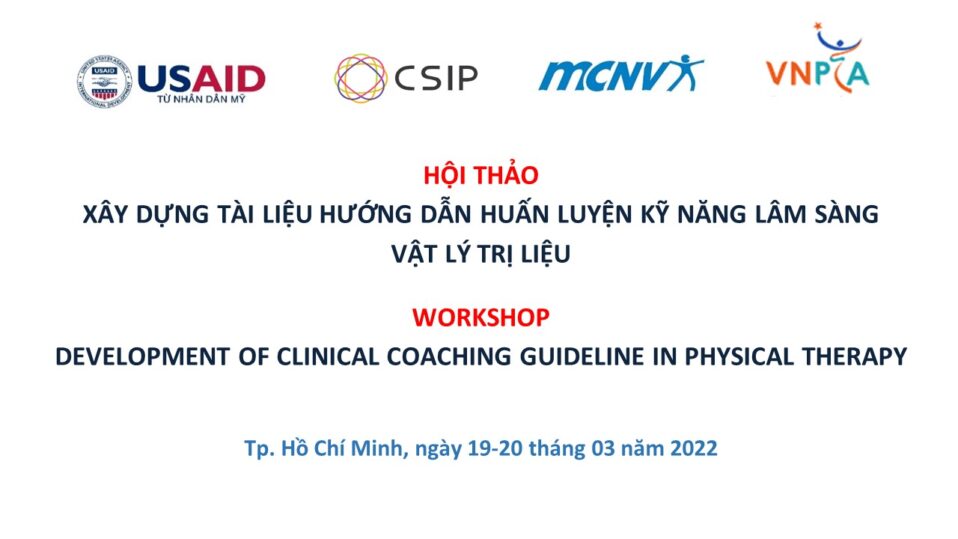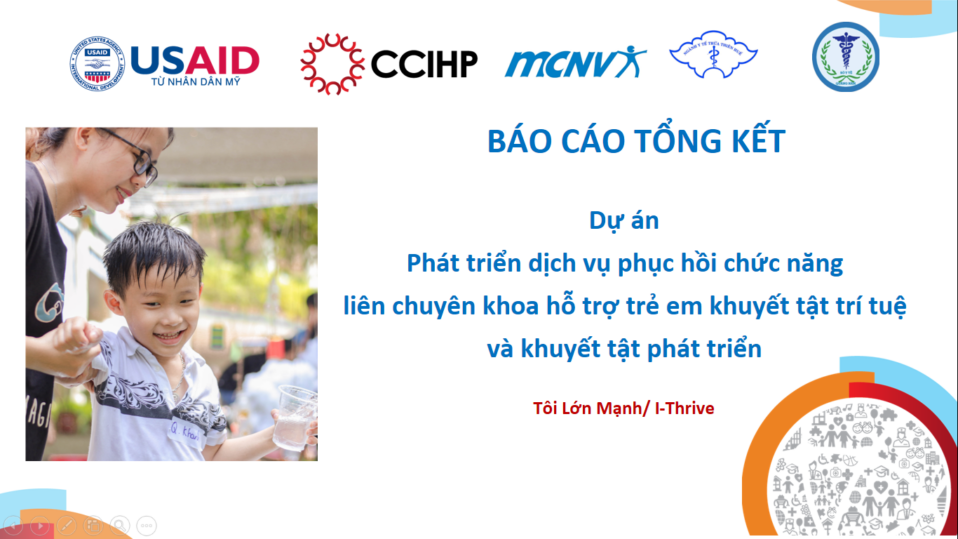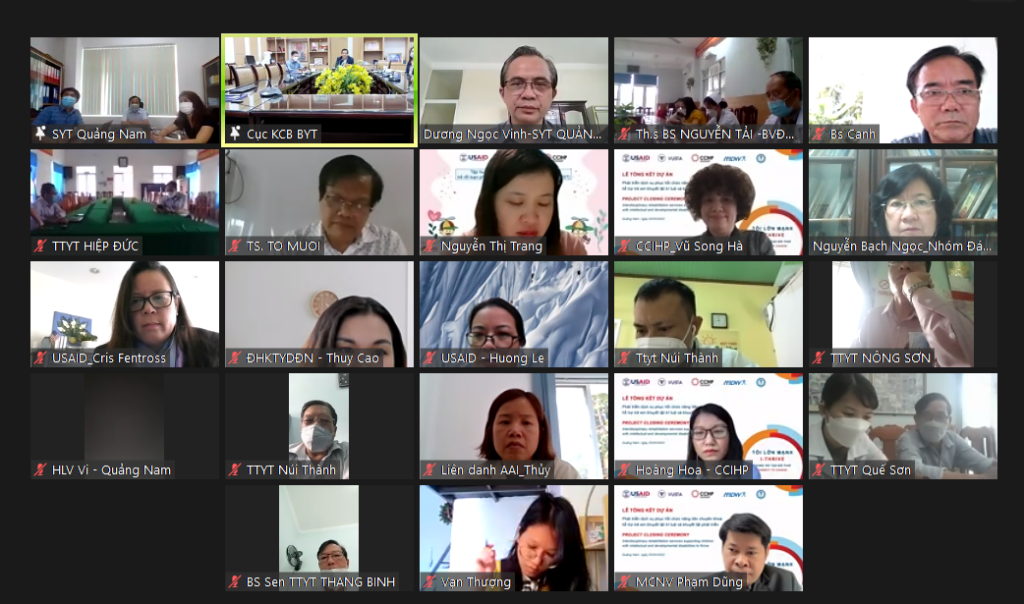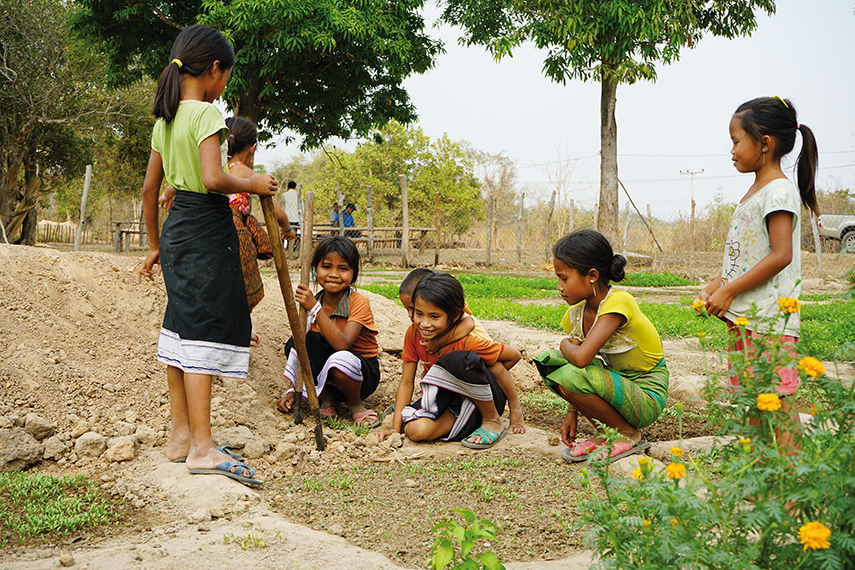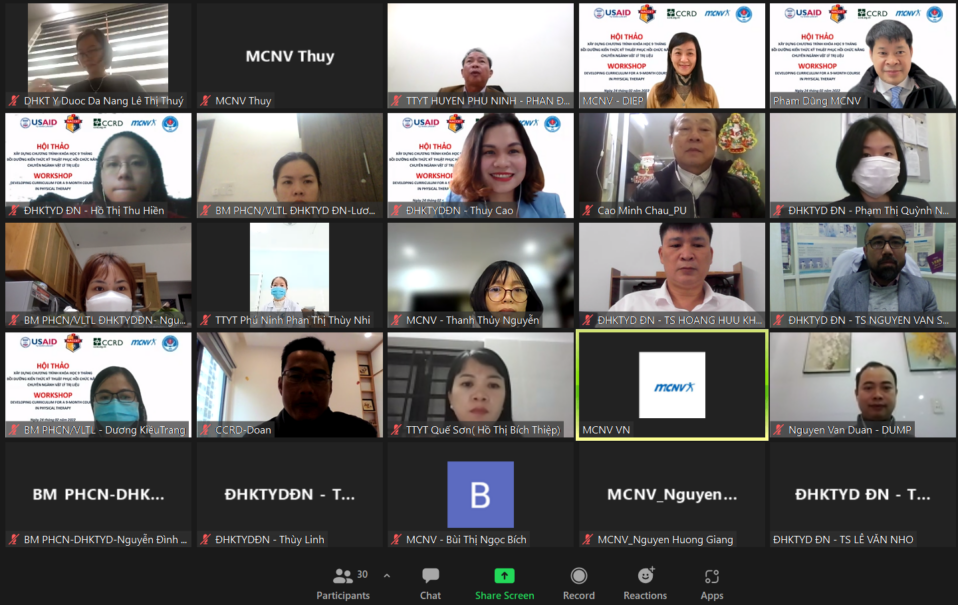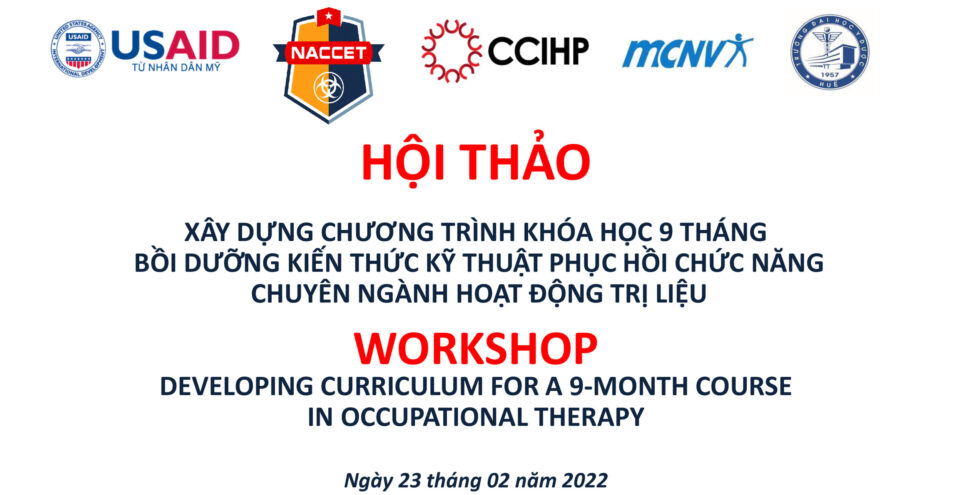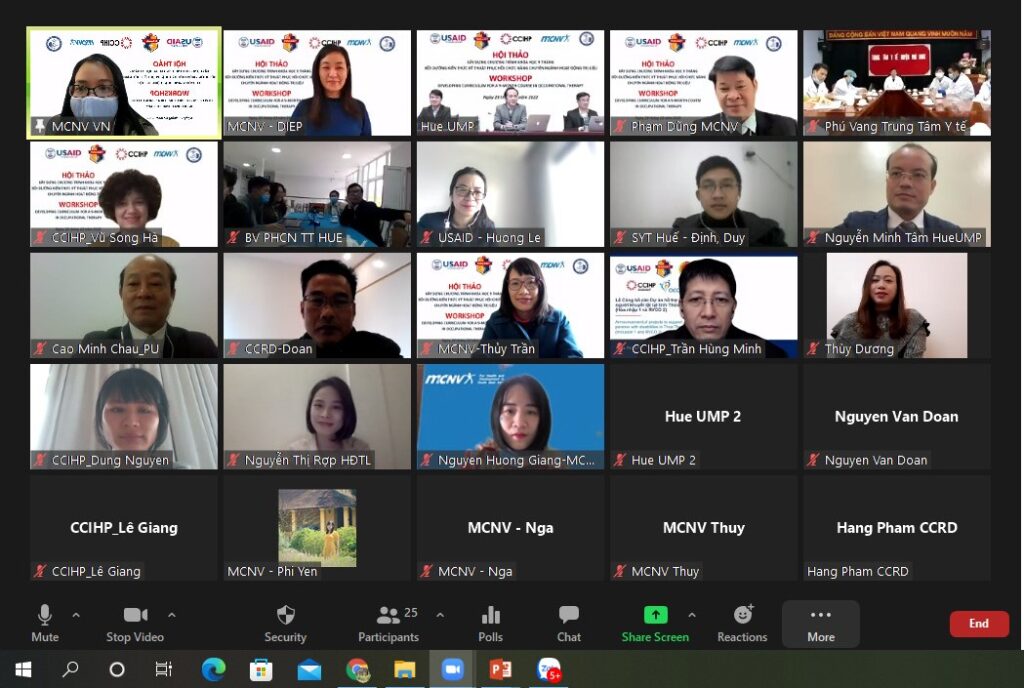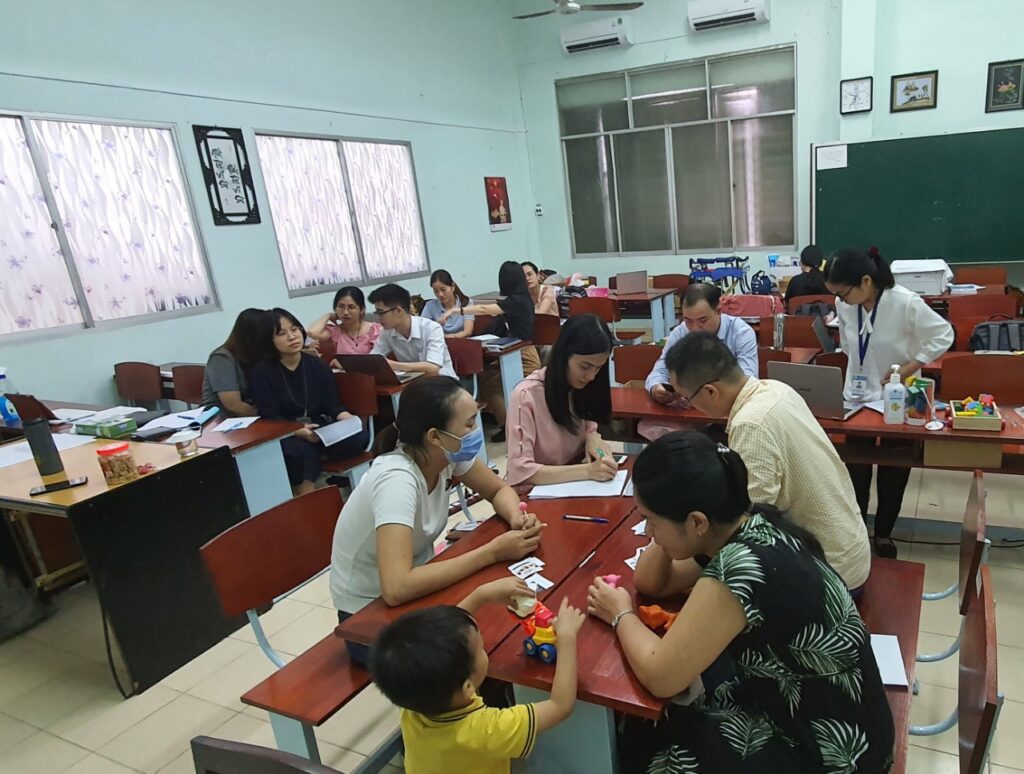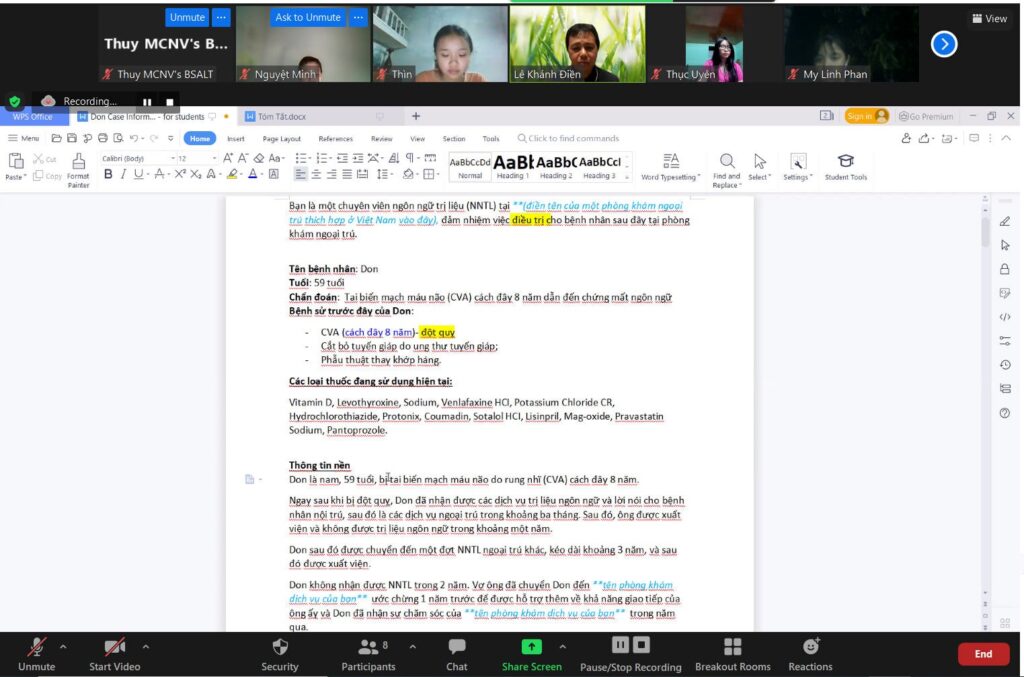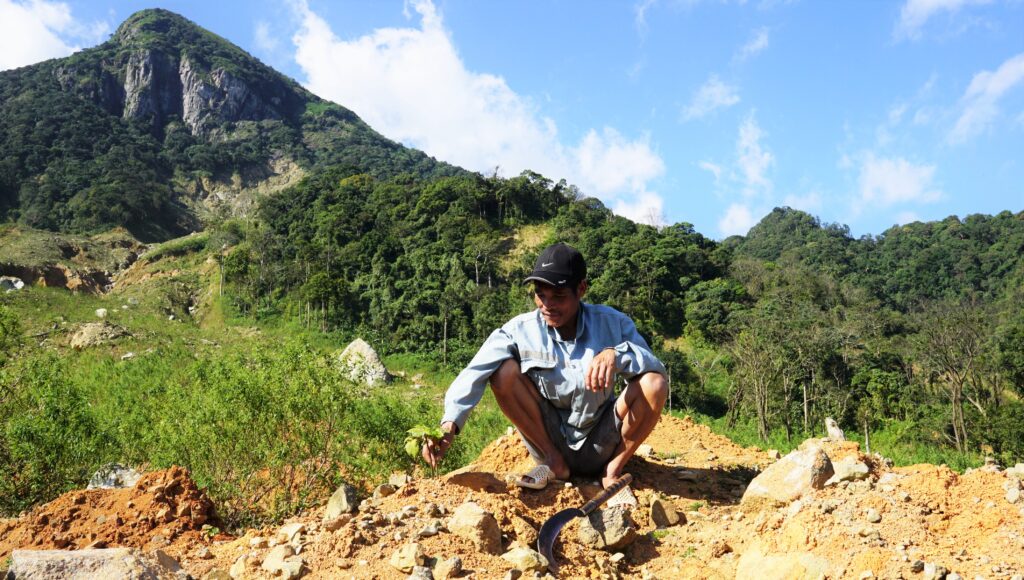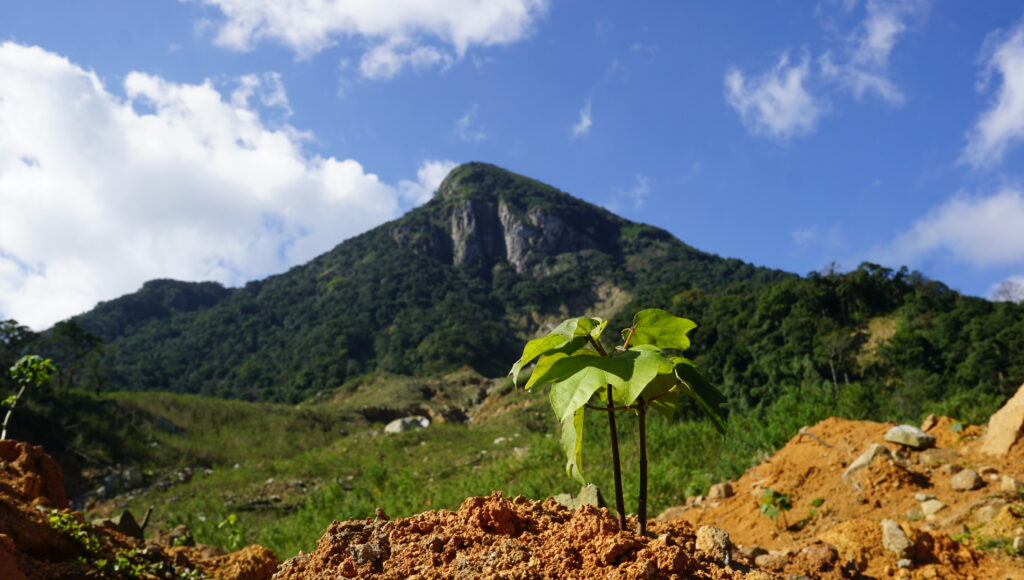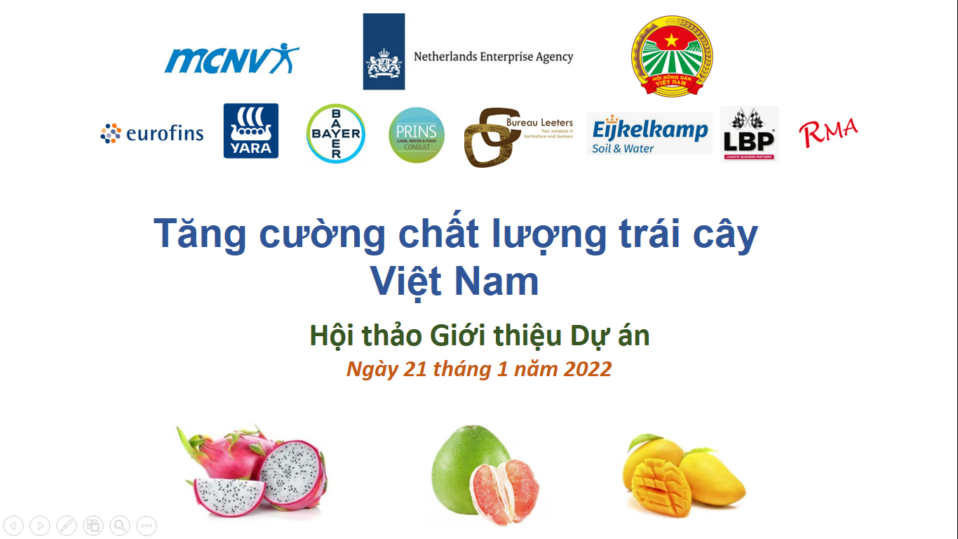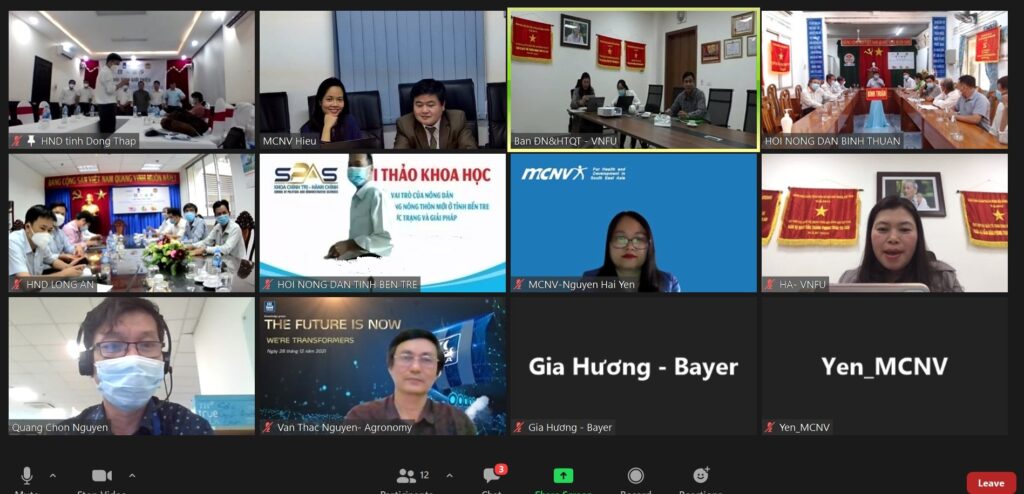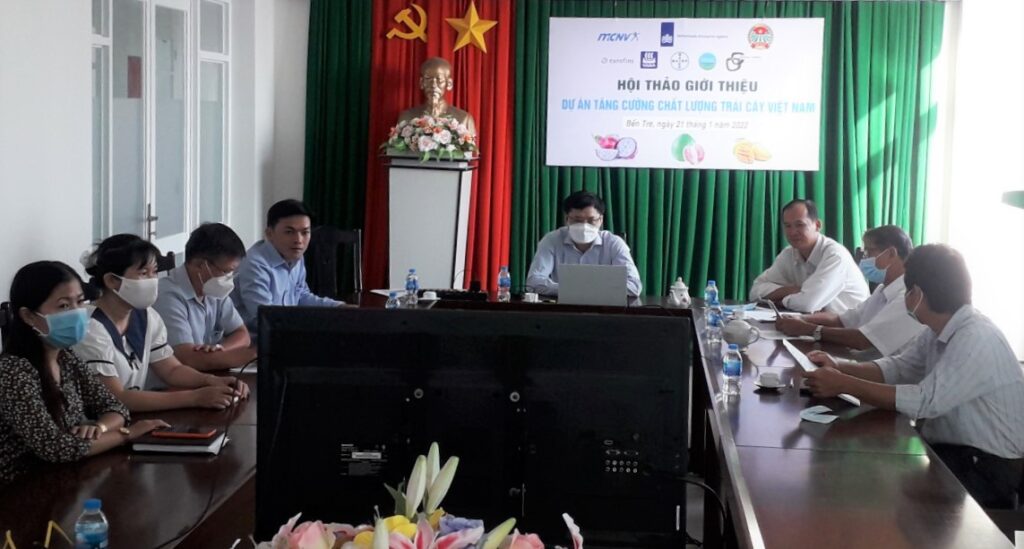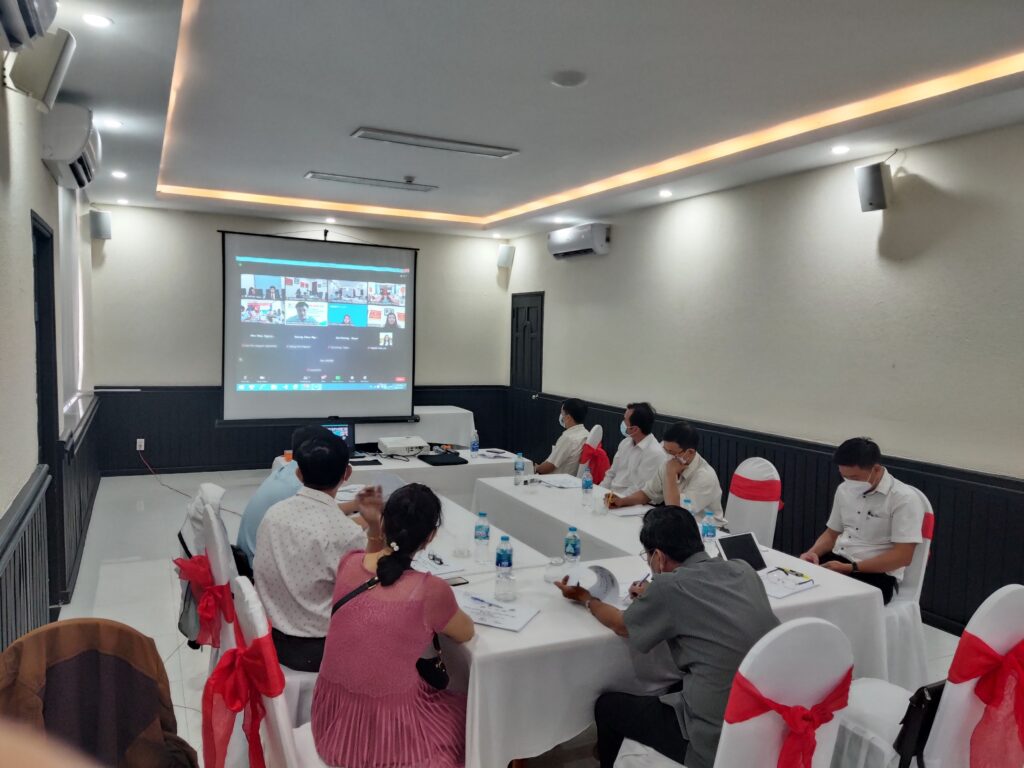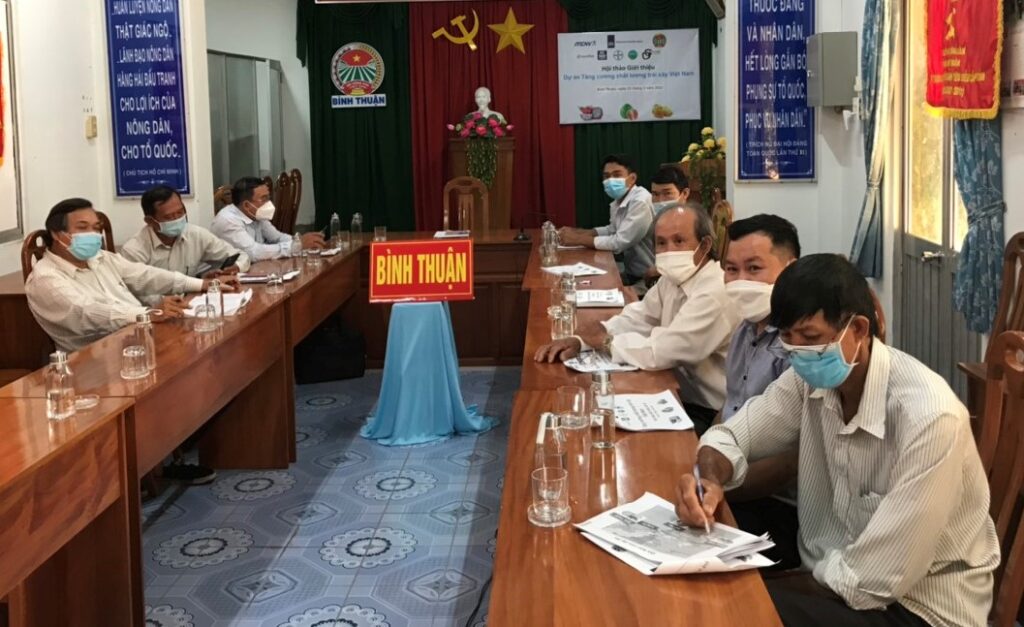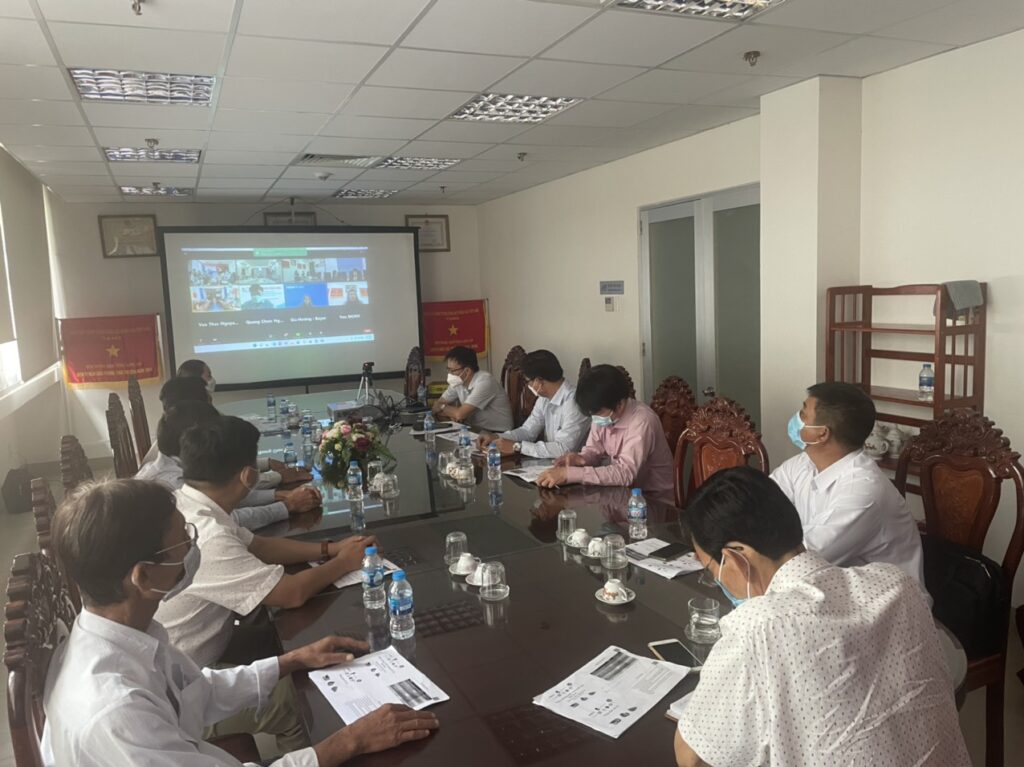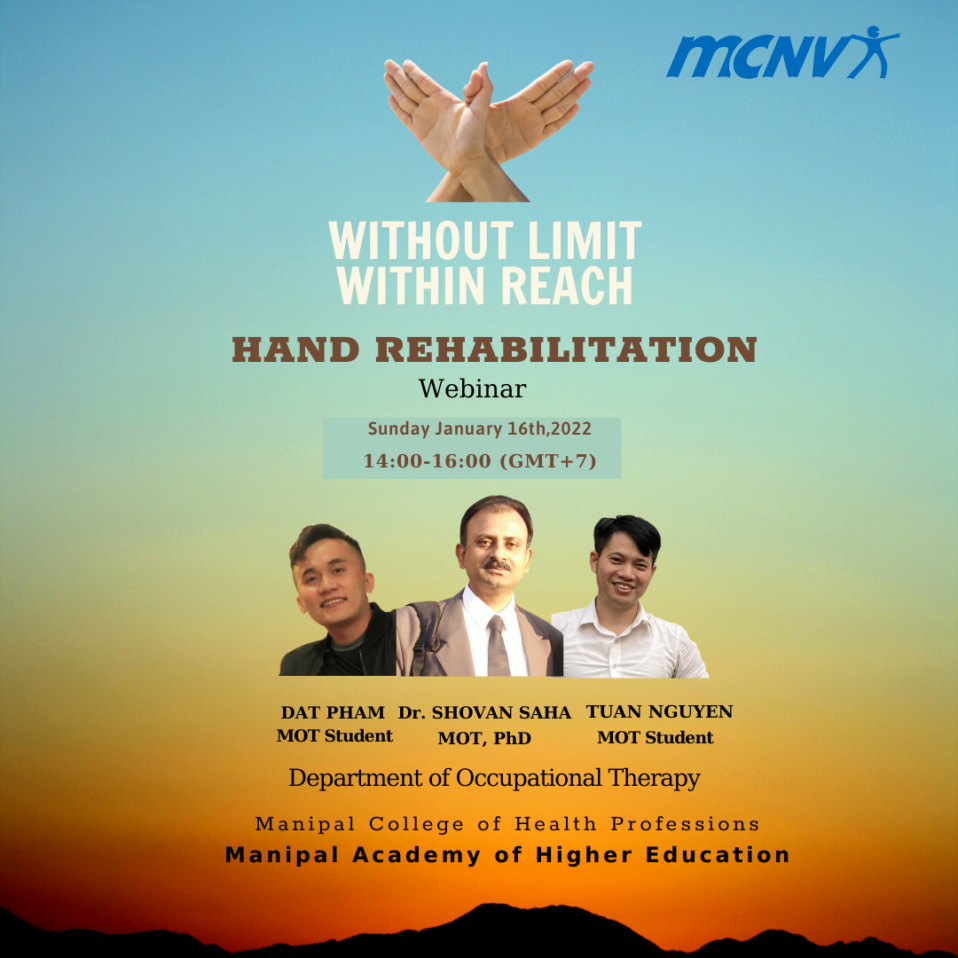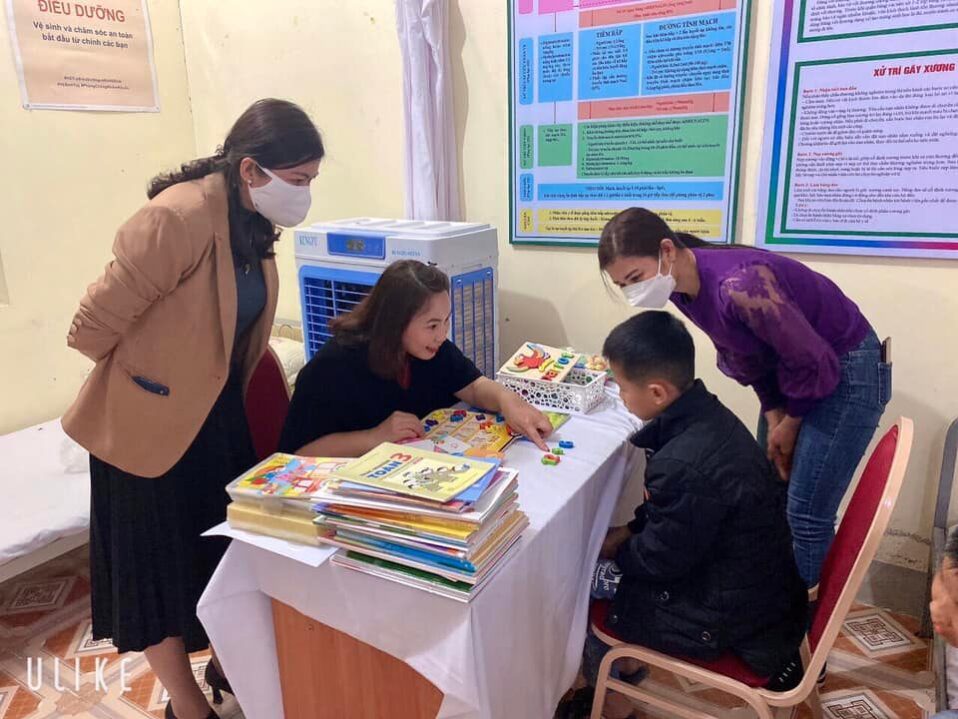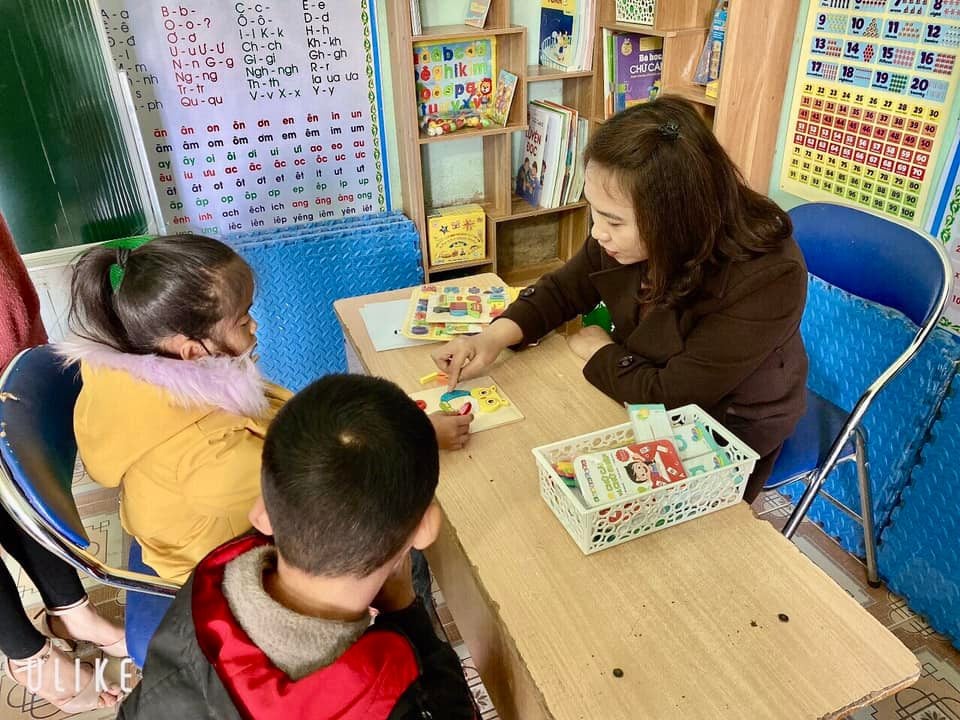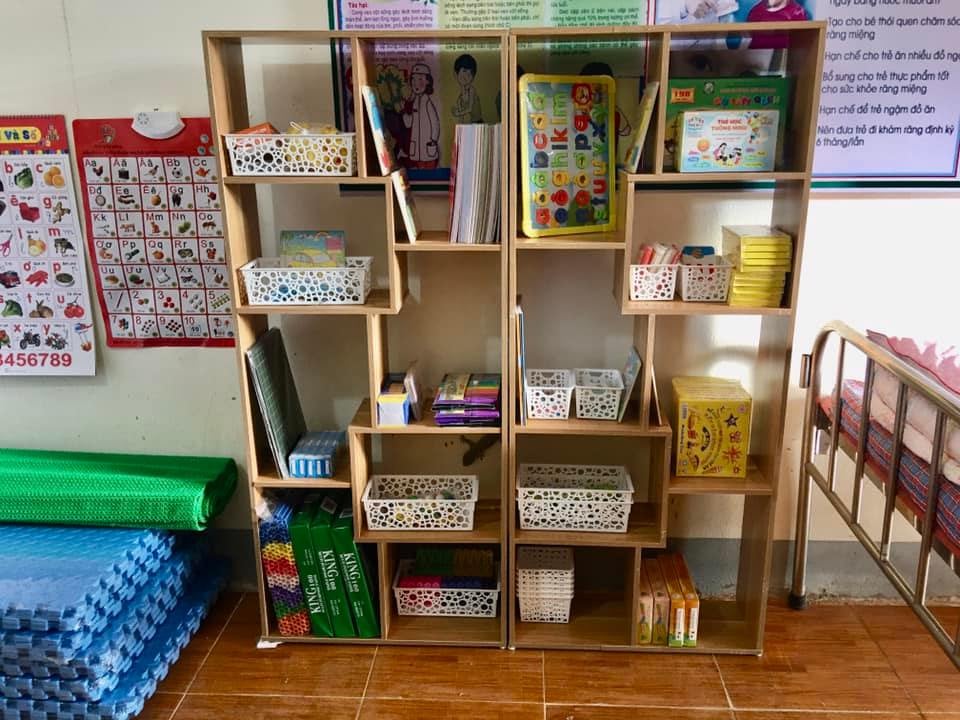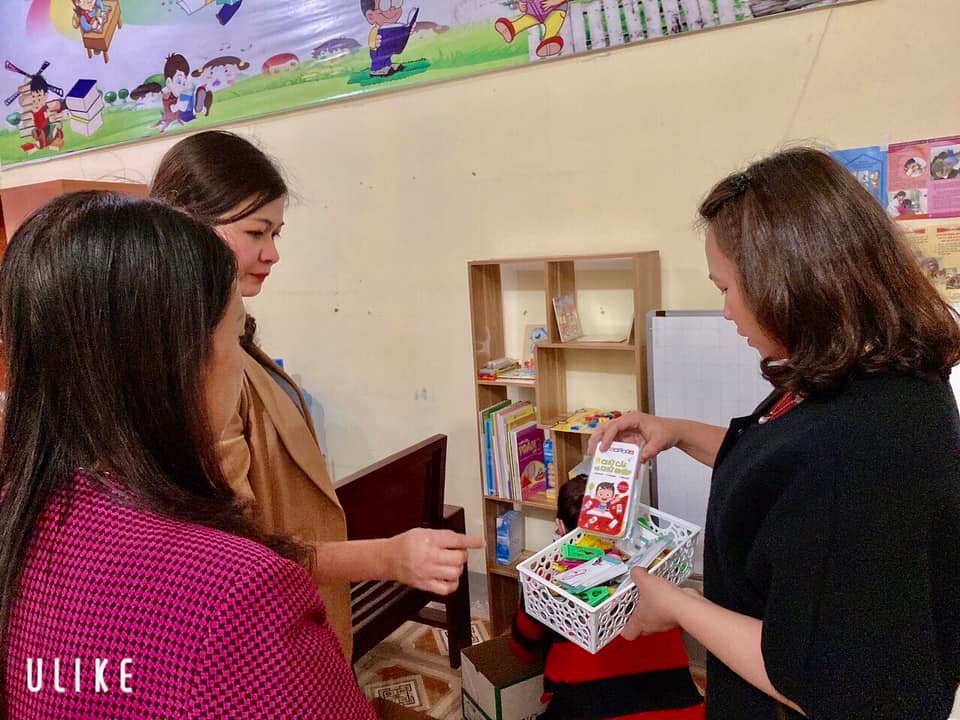In two days (March 19-20), a hybrid workshop on developing clinical coaching guideline in physical therapy (PT) was jointly held by MCNV and the Vietnam Physical Therapy Association (VNPTA).
The workshop attracted over 30 in-person and virtual participants from MCNV, VNPTA, VietHealth, VNAH, PT lecturers and experts from HCMC University of Medicine and Pharmacy (UMP), Da Nang University of Pharmacy and Medical Technology, Hong Bang International University and several hospitals in HCMC.
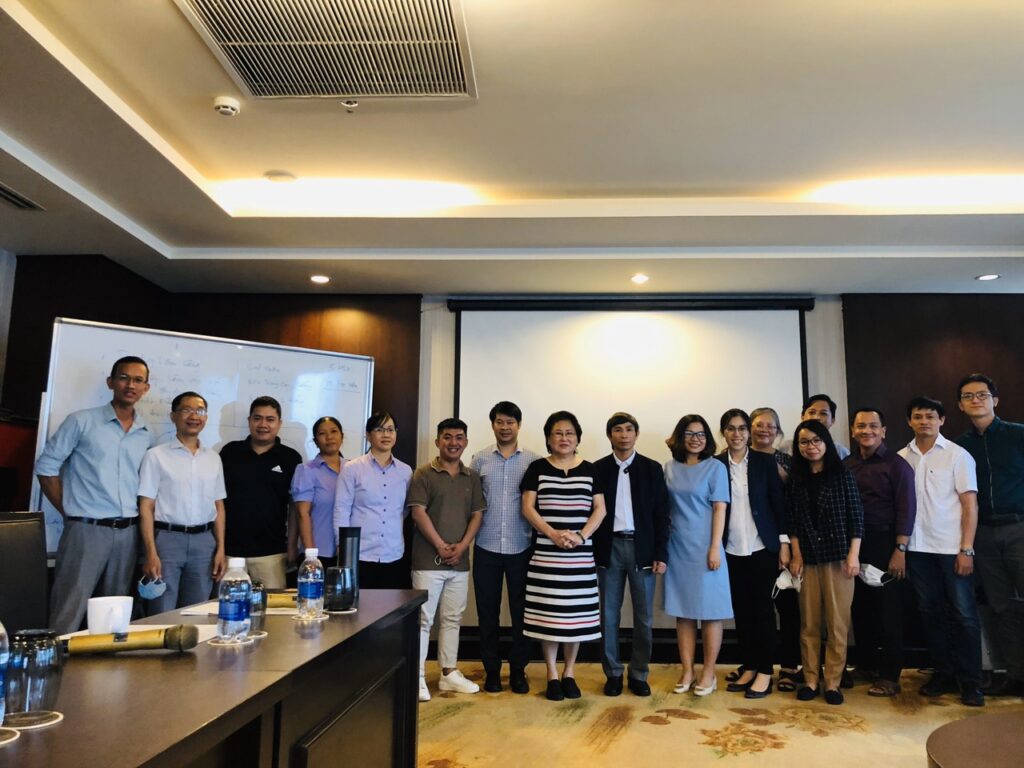
The workshop was held as part of the Inclusion 3, a project funded by the US Agency for International Development (USAID) implemented in Binh Phuoc, Tay Ninh and Dong Nai provinces, with an aim to improve the quality of life of people with disabilities (PWDs). The USAID’s prime counterpart is the National Action Centre for Toxic Chemicals and Environmental Treatment (NACCET) of the Ministry of National Defence. The implementing partner of the Inclusion 3 project is the Centre for Social Initiatives Promotion (CSIP).
The quality of healthcare and rehabilitation services for PWDs are determined by several factors, of which the capacity of the services providers plays a key role.
As the project’s sub awardee, MCNV works with three technical partners including VNPTA, World Confederation of Physical Therapy (WP), and the Trinh Foundation Australia (TFA) to enhance the capacity of rehabilitation workforce in Vietnam via coaching and mentoring activities in Physical Therapy and Speech and Language Therapy.
Speaking at the workshop, Mr Tran Van Dan, the VNPTA President, spoke highly of MCNV’s extensive experiences in Vietnam, especially in the area of rehabilitation capacity building, and looked forward to fruitful cooperation with MCNV to further improve the capacity of the country’s workforces specializing in the field of PT in particular and rehabilitation in general.
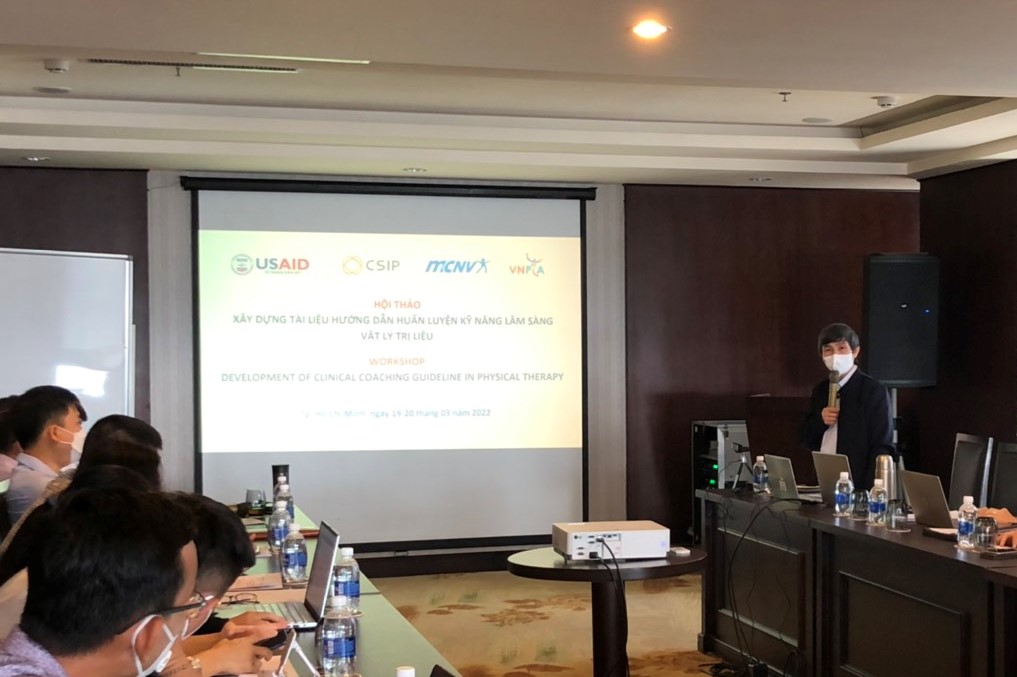
Subsequently, MCNV Vietnam Country Director, Mr Pham Dung briefed the partcipants on the coaching and mentoring activities. Conducted in 9 months, the coaching and mentoring will benefit 25 health workers who are providing PT services in provincial, district levels, public and private health facilities in Binh Phuoc, Tay Ninh and Dong Nai. Entrance requirement ranges from six-month certificate holders to college and university degree holders in PT.

The 160-hour coaching and mentoring will focus on clinical reasoning, communication skills to interact with colleagues in a multi-disciplinary team, up-to-date professional knowledge, advanced techniques, development of intervention plan, implementation and evaluation of intervention outcomes.
Via virtual platform and on-site coaching and mentoring, the program strives toward its ultimate goal, which is the enhancement of professional qualification of 25 health workers, who will be more confident in providing quality PT services to 900 patients and 250 PWDs.
Currently, a team of six coaches has been recruited and has completed an internationally-recognized mentoring and coaching course to prepare for the program.
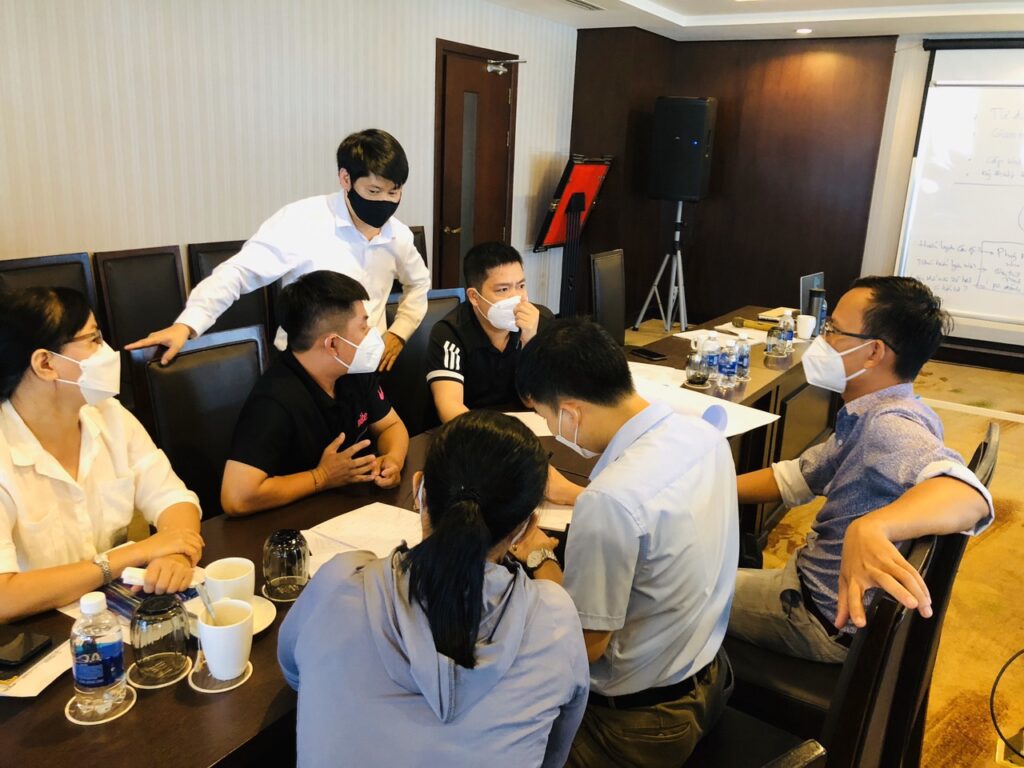
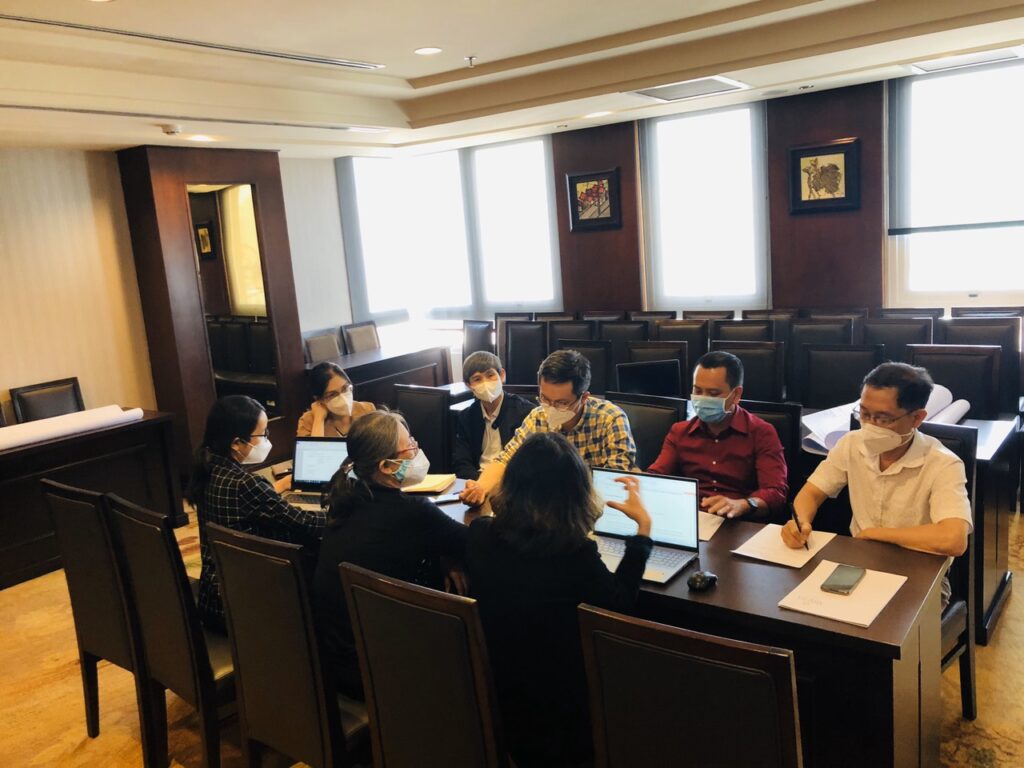
In the workshop, the participants became involved in a lively discussion to develop the clinical coaching guideline and formulate a concrete plan for the 9-month program./.


